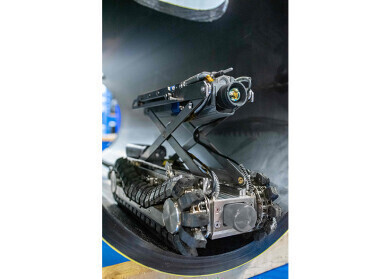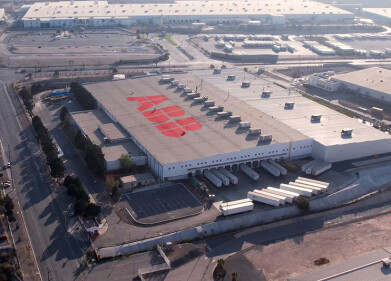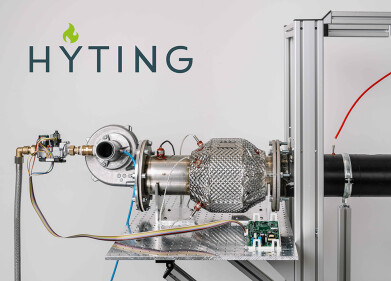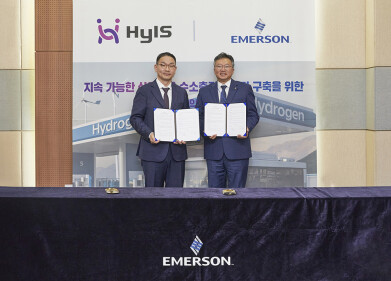Green energy
Robots set to police the hydrogen gas networks
Jan 18 2024
Advanced trials of robots that are able to detect hydrogen leaks and fix pipes have concluded. The research could help to pave the way for hydrogen to be used in industry, transport and heating.
Harrogate-based Synovate, part of the Synthotech Group, teamed up with Northern Gas Networks to undertake the trials at a test facility in Spadeadam, Cumbria.
The testing programme assessed if a robot could identify a hydrogen leak and repair an operational pipe. The Spadeadam research and testing facility is operated by DNV, a company that specialises in evaluating the effects of significant hazards on people and property.
The LeakVISION robots can be deployed remotely for long distances, which speeds up the investigation process to aid safety and reduce environmental impact.
Hydrogen can be used as a clean and renewable energy source to power homes in various ways. For example, hydrogen fuel cells can convert the chemical energy stored in hydrogen into electrical energy that can power homes.
Fuel cells combine hydrogen and oxygen to produce water and electricity. The process produces zero greenhouse gas emissions and only emits water vapour. Fuel cells are considered efficient and reliable and can be used to power homes in conjunction with other renewable energy sources like solar, wind or heat source pumps.
The government's Hydrogen Strategy aims to attract £4 billion in investment and launch a leading hydrogen economy that will create over 9,000 jobs by 2030. The aim is for all residential gas boilers to be hydrogen-ready by 2026. The change is predicted to save 21 million tonnes of CO2 and lower electricity costs by 2050.
Simon Langdale, engineering director at Synovate, said: "Hydrogen has the potential to play a significant role in decarbonising the UK. As technology and infrastructure continue to develop, hydrogen is likely to become an increasingly important energy source. Our advanced robot technologies will be essential to ensuring the optimisation and safety of the network."
Hydrogen can also be injected into the natural gas grid, which is used to supply homes with natural gas for heating and cooking. By blending hydrogen with natural gas, homes can use a cleaner energy source that emits fewer greenhouse gases than natural gas alone. The process of injecting hydrogen into the gas grid is being explored and tested by energy companies in several countries.
Hydrogen can be burned in boilers to provide heat and hot water for homes. Hydrogen boilers are similar to natural gas boilers and can be used to replace natural gas boilers in homes. Hydrogen boilers produce only water vapour and heat, making them a clean and renewable energy source for homes.
As hydrogen technology advances, it will be essential to put in place systems to ensure that the network can be maintained safely and cost-effectively.
Events
Jan 29 2025 Tokyo, Japan
Feb 05 2025 Nantes, France
Feb 16 2025 Kampala, Uganda
Feb 26 2025 Chennai, India
Feb 26 2025 Tulsa, OK, USA











